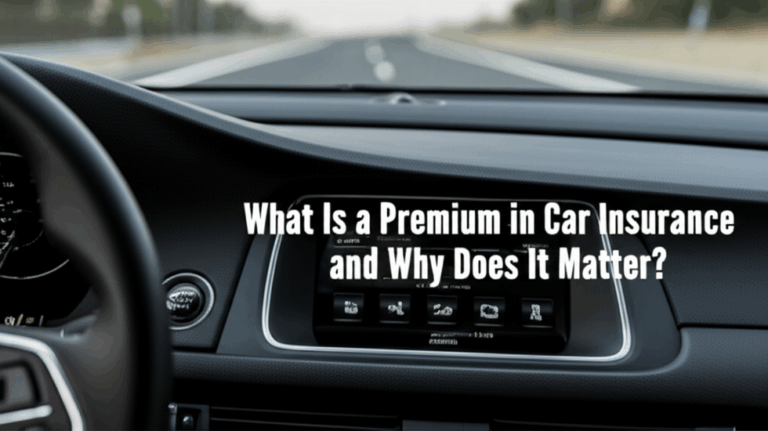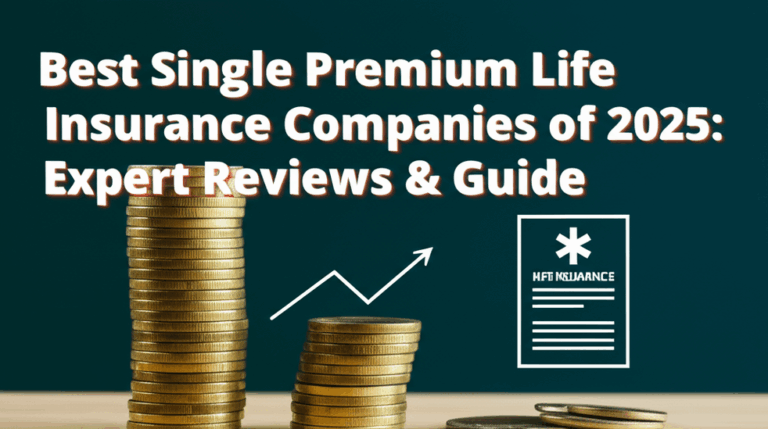What Is Mortgage Insurance Premium and How Does It Impact You?

Buying a home brings many new costs. One of those is the mortgage insurance premium. We call it a key piece of most home loans today, especially if you do not put much money down. Knowing what is mortgage insurance premium can save you money and stress.
Our article will break down every piece: what a mortgage insurance premium is, why lenders want it, how it works, and how you can handle costs. We explain rules for FHA and conventional loans. We show you how to check if you can cancel mortgage insurance. We share real examples, current rules, and what actions to take.
What does mortgage insurance premium mean when you buy a home?
Many buyers must pay a mortgage insurance premium. Lenders need this cost to lower their risk. It protects them in case the borrower stops making payments. FHA loans require a special fee called FHA mortgage insurance premium. Conventional loans need private mortgage insurance when the down payment is below 20%.
A mortgage insurance premium keeps the loan process moving. Lenders approve more buyers, even with smaller down payments. The insurance protects only the lender, not your home or things. Our experience shows many first-time buyers pay this fee each month for many years. For example, a young couple bought a $300,000 home in 2024. They put only 5% down. Their lender added both upfront mortgage insurance premium and a monthly payment.
You pay this premium in two main ways. Lenders may ask for a one-time payment up front, or you pay a piece each month. Monthly payments stay with your regular loan bill. Upfront payments come at closing. Each lender shares these choices in their closing disclosure.
Mortgage insurance premium is a cost you pay to protect the lender
Lenders want their money back no matter what. If you cannot pay, the insurance covers their loss, not yours. Most buyers pay this fee if they cannot put down 20% or more on a home. FHA and conventional loans both use this system. We helped clients with both types.

You do not get to skip this unless you pay a large down payment. Some lenders let borrowers pay part now and part each month. For instance, if your credit score is low, you pay more because the risk is higher. Lenders set the cost based on factors like credit, loan amount, and down payment.
- Mortgage insurance protects lender risk
- Buyer pays every month or once at closing
- FHA loans demand mortgage insurance for every buyer
Both FHA and conventional loans may require insurance payments
Most buyers pick between an FHA loan or a conventional loan. FHA loans always charge mortgage insurance premium, no matter your down payment. Conventional loans use PMI or private mortgage insurance. If your down payment is under 20%, the lender will ask for this insurance.
Our clients often ask why they must pay. We explain: lenders want security. FHA mortgage insurance never goes away unless you sell or refinance. On conventional loans, you can remove PMI after you build 20% equity. The rules in the U.S. come from the Federal Housing Administration and industry groups.
- FHA loans = always charge mortgage insurance premium
- Conventional loans = charge PMI for low down payments
You pay your mortgage insurance premium monthly or upfront
You pay your mortgage insurance premium each month or during closing. Some buyers choose both methods. A closing disclosure from your lender will show how you pay and how much.
| Loan Type | Monthly Payment | Upfront Fee |
|---|---|---|
| FHA | Yes | Yes (UFMIP) |
| Conventional | Yes, if PMI applies | Possible |
We urge readers to check every fee before they agree to a loan. Your insurance cost ties directly to your credit and down payment. Always use a cost calculator to estimate the monthly change before you sign.
Related:
Best Single Premium Life Insurance Companies of 2025: Expert Reviews & Guide
What should you know about paying mortgage insurance premium in the USA?
Rules are not the same on every home loan. Each loan type—FHA, VA, and conventional—has unique insurance systems. FHA loans come with an upfront fee and a monthly premium, even with a big down payment. Conventional loans only need private mortgage insurance if the down payment falls below 20%.
FHA buyers must pay FHA mortgage insurance premium for the full loan or at least eleven years. Private mortgage insurance on a conventional loan could go away faster. Our clients sometimes call us about dropping this payment. We advise them to check their loan type and current rules. Some lenders let you stop paying if you hit home equity milestones.
Different loan types have different insurance rules
In our experience, FHA and conventional loans have the highest rates of mortgage insurance premium issues. FHA buyers always pay both upfront and each month. Conventional buyers only pay PMI if they put less than 20% down.

- FHA upfront mortgage insurance premium stays no matter your down payment
- Private mortgage insurance (PMI) on a conventional loan can be removed
We suggest you check with your lender about your loan’s rules. It may help to ask about upcoming deadlines or home equity options.
FHA loans always include upfront and ongoing insurance payments
You find FHA mortgage insurance premium on every FHA loan. This fee comes as both an upfront mortgage insurance premium (UFMIP) and a monthly premium. UFMIP usually equals 1.75% of your loan and is required at closing.
You pay the monthly piece as long as you have the FHA loan. There is no way to avoid it. This system started after the mortgage crisis to protect lenders and keep loans safe. FHA insurance covers only lenders, not you as a homeowner.
- UFMIP must be paid at closing
- Monthly FHA insurance cost added to each bill
Conventional loans require private mortgage insurance if the down payment is low
When you buy with less than 20% down using a conventional loan, your lender adds private mortgage insurance. Our colleagues at ExpertRealty have written about how PMI can add hundreds to your bill. Credit score and loan size affect your PMI cost. Some lenders offer special programs, but most require PMI for smaller down payments.
You can request removal of PMI after you reach 20% equity. Some states mandate PMI removal when the loan drops to 78% of your home’s price. We urge everyone to ask their lender about these rules up front.
What happens to your mortgage insurance premium over time?
The cost of mortgage insurance premium does not stay forever in every case. You may stop paying after you build enough equity in your home. Some FHA loans keep it for the life of the loan. Most conventional loans let you remove it after enough payments.
Canceling your mortgage insurance premium saves money in the long run. Our past clients report saving $100 a month after hitting equity milestones. For example, one client refinanced their loan in 2023 and removed their PMI after values soared.
Your insurance premium may go away as you build home equity
Each mortgage insurance agreement comes with a rulebook. On most conventional loans, you can ask for removal once you hit 20% home equity. Lenders sometimes remove PMI without your request at 22%. FHA insurance for newer loans usually lasts either 11 years or until you refinance. Our mortgage specialist partner shared how many clients are not aware of these removal options.

We advise every customer to keep close records and check statements. You may qualify for removal faster than you think. Check your lender’s monthly dashboard or ask for a written update each year.
Some loans let you cancel insurance payments after hitting targets
Not all buyers can end mortgage insurance premium payments early. Only conventional loans allow removal based on home value, or if you make big improvements.
- PMI usually ends when equity reaches 20-22%
- FHA insurance lasts at least 11 years on most loans
Homeowners who refinance often drop their FHA insurance. Our client Lisa did that in 2024 after values in Texas grew quickly. Her lender confirmed removal rules in her loan disclosure.

What should you remember and what steps can you take next?
Check your loan details for insurance rules and costs. Our experience shows that understanding your mortgage insurance premium can help you save hundreds each year. Always look for removal options and keep a close watch on your equity progress.
We guide our readers to reach out to their lender or local agent for review. Some lenders offer free checkups yearly to discuss cancel mortgage insurance options. You may find a refinance could reduce or remove your insurance costs.
You can also visit our guide to understanding FHA eligibility criteria if you plan to refinance in the future. Learning new rules about mortgage insurance tax deduction may also help you at tax time.
In closing, knowing what is mortgage insurance premium gives you the power to plan ahead, save money, and protect your home buying future. Ask for advice. Stay in touch with your lender. Build your knowledge every step of the way.
Frequently Asked Questions about mortgage insurance premium
Who pays mortgage insurance premium during a home purchase?
The homebuyer pays it. Lenders need this as part of most low down payment loans. There are exceptions only for VA loans or some special programs.
When does mortgage insurance premium end?
On most conventional loans, you can stop paying when you hit 20% home equity, or the lender removes it for you at 22%. FHA insurance lasts at least 11 years or for the full loan unless you refinance.
Can you avoid paying mortgage insurance premium entirely?
Yes. You need to put down at least 20% or have a special loan type. Ask your lender for more details.
How is the cost of mortgage insurance premium set?
Cost depends on credit score, loan amount, lender rules, and down payment. Each lender sets their own fee tables.
Is upfront mortgage insurance premium refundable?
No, most lenders do not refund it. There are exceptions only on certain FHA loans if you refinance quickly.
What does the lender do with mortgage insurance premium?
Lender sends it to an insurance provider. Provider ensures lender gets paid if you default.
What happens if you stop paying mortgage insurance premium?
Lender treats it as a missed mortgage payment. They may charge late fees or start foreclosure if not fixed quickly.






